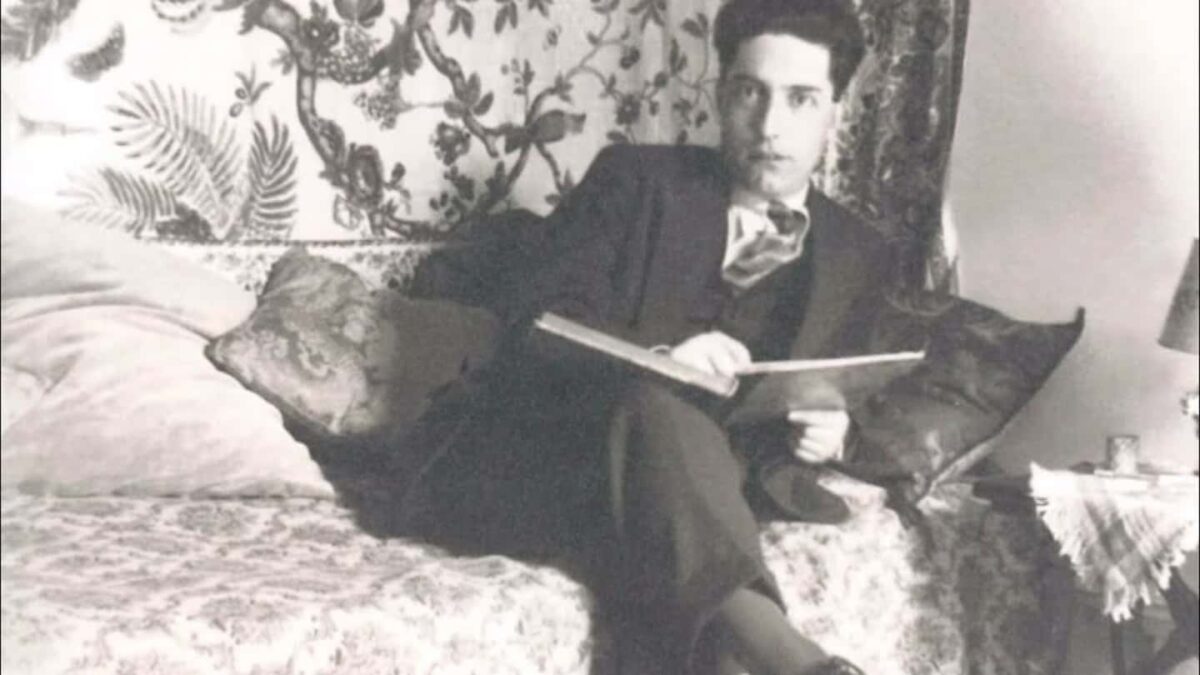Luigi Dallapiccola
Dallapiccola was born at Pisino d’Istria (current Pazin, Croatia), to Italian parents.
Unlike many composers born into highly musical environments, his early musical career was irregular at best. Political disputes over his birthplace of Istria, then part of the Austrian empire, led to instability and frequent moves. His father was headmaster of an Italian-language school – the only one in the city – which was shut down at the start of World War I. The family, considered politically subversive, was placed in internment at Graz, Austria, where the budding composer hadn’t even access to a piano, though he did attend performances at the local opera house, which cemented his desire to pursue composition as a career. Once back to his hometown Pisino after the war, he travelled frequently.
Dallapiccola took his piano degree at the Florence Conservatory in the 1920s and became professor there in 1931; until his 1967 retirement he spent his career there teaching lessons in piano as a secondary instrument, replacing his teacher Ernesto Consolo as the older man’s illness prevented him from continuing. He also studied composition with Vito Frazzi at the Conservatorio Luigi Cherubini. Dallapiccola’s students include Abraham Zalman Walker and Luciano Berio.
Dallapiccola’s early experiences under the fascist regime of Benito Mussolini would color his outlook and output for the rest of his life. He once supported Mussolini, believing the propaganda, and it was not until the 1930s that he would become passionate about his political views, in protest to the Abyssinian campaign and Italy’s involvement in the Spanish Civil War. Mussolini’s sympathy with Adolf Hitler’s views on race, which threatened his Jewish wife Laura Luzzatto, only hardened his stance. Canti di prigionia and Il prigionero are reflections of this impassioned concern; the former was his first true protest work.
During World War II he was in the dangerous position of opposing the Nazis; though he tried to go about his career as usual, and did, to a limited extent, on two occasions he was forced to go into hiding for several months. Dallapiccola would continue his touring as a recitalist – but only in countries not occupied by the Nazis.
Though it was only after the war that his compositions made it into the public eye (with his opera Canti di prigionera sparking his fame), it was then that his life would be relatively quiet. He made frequent travels to the United States, including appearances at Tanglewood and several semesters of teaching courses in composition at Queens College, New York beginning in 1956. He was a sought-after lecturer throughout Western Europe and the Americas. Dallapiccola’s 1968 opera Ulisse would be the peak of his career, after which his compositional output would be sparse; his later years were largely spent writing essays rather than music.
He had no more finished compositions after 1972 due to his failing health, until he died in Florence in 1975 of edema of the lungs; however, there are a very few sketches and fragments of work from this time, including a vocal work left unfinished just hours before he passed on.
Luigi Dallapiccola and Goffredo Petrassi: Musica da camera (mode 166)

